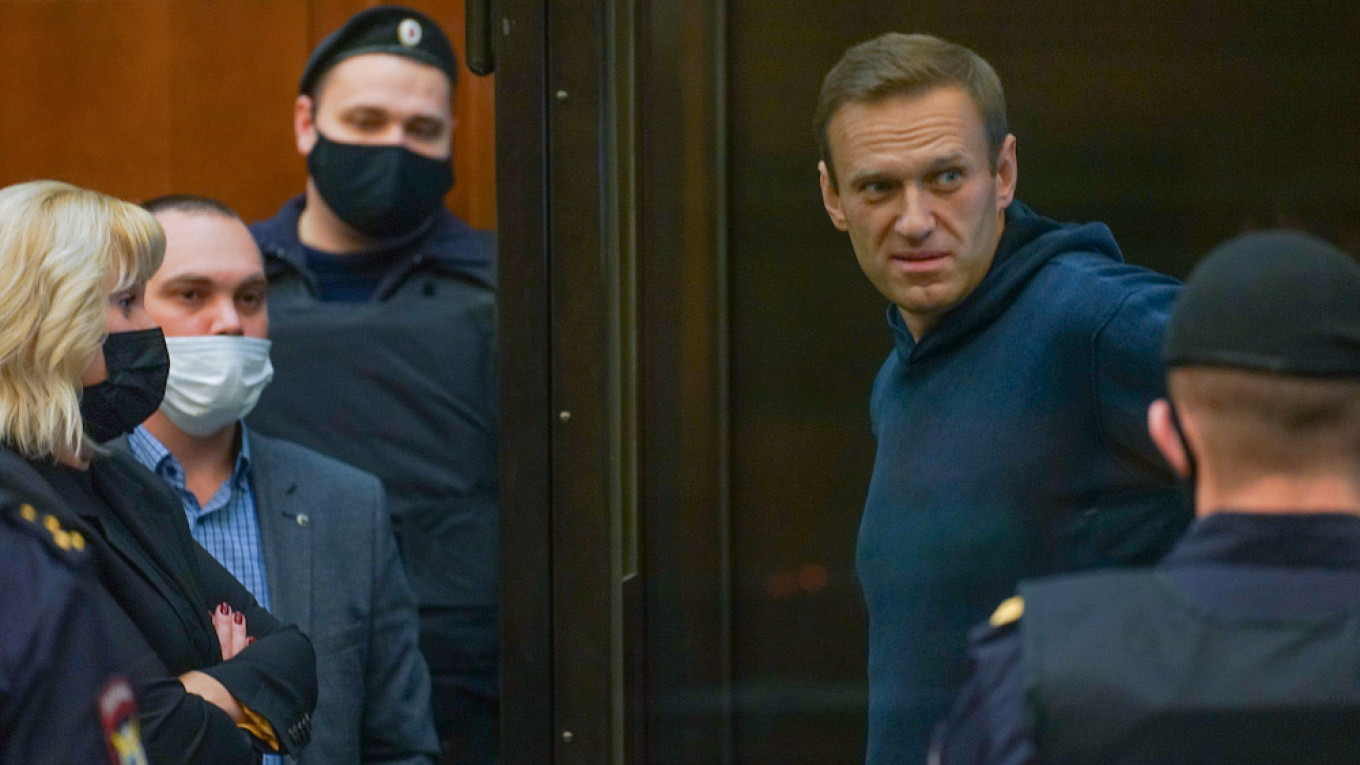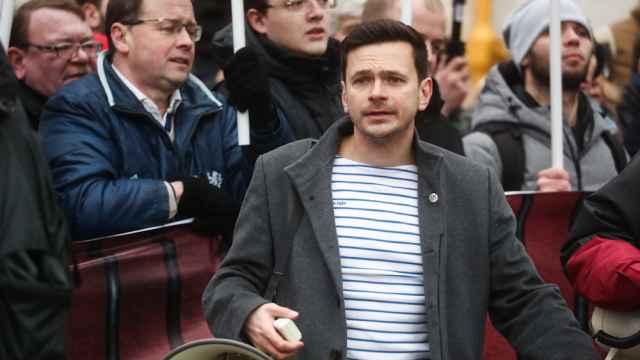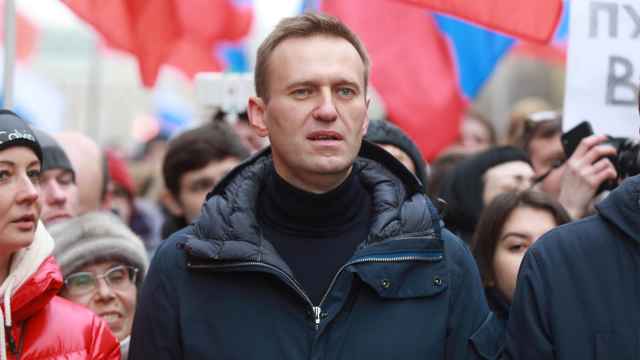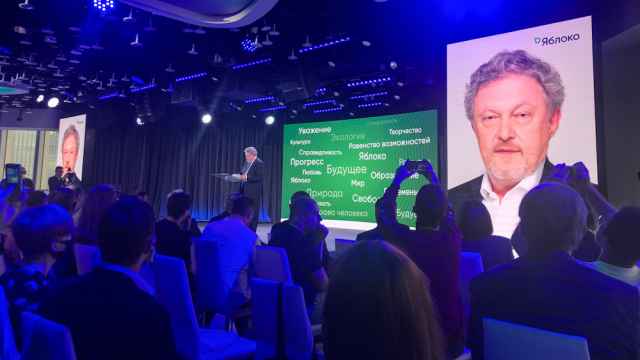Only a month after designating recently imprisoned Russian opposition leader Alexei Navalny as a prisoner of conscience — a symbolically important label created by Amnesty International’s founder 60 years ago — Amnesty International (AI) revoked that designation in the face of what appears to be a concerted campaign by figures sympathetic to the Kremlin, some with links to state outlet RT.
While AI continues to call for Navalny’s release, the sudden revocation of this label over Navalny’s past hate speech will only embolden the Kremlin and serve as a precedent to other authoritarian regimes seeking to discredit their opposition.
The prisoner of conscience concept created and popularized by AI has been used to great effect to improve the conditions and obtain the release of political prisoners. Here are the requirements for that designation:
“Amnesty International considers as a prisoner of conscience any person imprisoned or otherwise physically restricted solely because of his/her political, religious or other conscientiously held beliefs, ethnic origin, sex, color, language, national or social origin, economic status, birth, sexual orientation or other status, or for exercising his or her right to freedom of expression or other human rights, and who has not used violence or advocated violence or hatred [emphasis added].”
Navalny has clearly run afoul of the hate speech provision. In his early days as an opposition leader, he made numerous derogatory statements about Central Asian migrants and Russian ethnic minorities.
While he stopped using that kind of rhetoric and no longer aligns himself with ethnic nationalist causes, he also has not apologized for his previous actions despite being given ample opportunity to do so. Gessen has an overview of Navalny’s evolution from ultranationalist to an anti-corruption campaigner.
It is quite possible — albeit impossible to verify — that Navalny’s transformation is a result of a change in emphasis rather than a change in beliefs.
But, none of this information is new. Without fail, Western coverage of Navalny-led protests is followed by stories highlighting his nationalist past. It is inconceivable that AI officials were not aware of that history when first designating Navalny as a prisoner of conscience.
The fact this decision was reversed immediately after what an AI staff member called a “coordinated campaign done not out of goodwill, but maliciously” aided by individuals with dubious records when it comes to support for human rights does not provide much faith in AI’s decision-making process. Some reports suggest that the decision was made despite disagreements between the Russian and main offices of AI.
Even by AI’s standards, this is far from a clear-cut case. According to William Korey’s book chapter about the creation of AI, the organization’s founder, Peter Benenson, first thought of the concept of prisoner of conscience after reading about two Portuguese students being arrested by the authoritarian Salazar regime for making a toast to freedom. At no point did Benenson ask about the political views of those students.
Presumably because he knew those views were irrelevant to Salazar’s decision to imprison them. When AI did made the decision to rigidly apply its criteria, Nelson Mandela ended up being denied the protection afforded by the prisoner of conscience label.
AI’s decision to revoke Navalny’s prisoner of conscience status is also inconsistent with the organization’s own past decisions. In his article about the prisoner of conscience concept, Edy Kaufman cites a 1990 AI decision relating to the imprisonment of Palestinian Fatah members by Syria.
Those individuals were granted prisoner of conscience status despite being part of an organization that openly advocated violence because their imprisonment was unrelated to that advocacy.
As per the same article, AI refused a prisoner of conscience designation to certain Serbian and Croatian nationalists because they were imprisoned over their racist statements. The spirit, if not the language, of the hate speech criterion would suggest that it only be an issue when someone’s imprisonment was itself based on hate speech.
Not even the Russian government argues that Navalny’s current imprisonment has anything to do with Navalny’s disparagement of ethnic minorities and Central Asian migrants.
Furthermore, the hate speech provision hasn’t been consistently applied in other cases, including in Russia. Eduard Limonov was granted prisoner of conscience status in 2011 after being arrested for opposition activities.
Limonov previously founded the National Bolshevik Party, which wedded Nazi and Marxist ideologies. Even worse, Limonov actively supported the genocide of Muslims in Bosnia, at one point appearing in a video with Radovan Karadžić — who was later convicted of that genocide — while shooting a machine gun onto the streets of Srebrenica. Just like with Navalny, none of this information was a secret at the time of Limonov’s prisoner of conscience designation.
While AI was within its rights to change Navalny’s designation, its clumsy and opaque handling of this process gave a victory to the Kremlin and a toolkit to other authoritarian regimes seeking to discredit their political prisoners.
Had AI initially determined that Navalny did not warrant being called a prisoner of conscience, this probably wouldn’t make the front pages of BBC and the Guardian. Had AI removed the designation after a thorough and transparent process, there would likely be only some muted criticism.
But making this change in the wake of a barely concealed campaign by the Russian government and those friendly to it casts a negative light on AI and emboldens the Russian government and others seeking to discredit their opposition.
The precedent that AI has set is that authoritarian governments that already have access to tools of mass surveillance can severely weaken an international campaign for the rights of peaceful protesters by encouraging proxies to compile and disseminate incriminating evidence obtained decades earlier.
Any opposition politician who engaged in hate speech in the past likely faces a higher probability of imprisonment on trumped up charges due to the lower international cost of such an imprisonment.
That is clearly not AI’s intent and there is no reason to doubt the organization’s sincerity in continuing to call for Navalny’s release, but AI doesn’t get to decide what lessons others learn from their mistakes.
AI can’t change the past, but it owes it to the human rights community to fully account for how the initial decision to grant Navalny prisoner of conscience status and the subsequent decision to revoke that status were made.
A Message from The Moscow Times:
Dear readers,
We are facing unprecedented challenges. Russia's Prosecutor General's Office has designated The Moscow Times as an "undesirable" organization, criminalizing our work and putting our staff at risk of prosecution. This follows our earlier unjust labeling as a "foreign agent."
These actions are direct attempts to silence independent journalism in Russia. The authorities claim our work "discredits the decisions of the Russian leadership." We see things differently: we strive to provide accurate, unbiased reporting on Russia.
We, the journalists of The Moscow Times, refuse to be silenced. But to continue our work, we need your help.
Your support, no matter how small, makes a world of difference. If you can, please support us monthly starting from just $2. It's quick to set up, and every contribution makes a significant impact.
By supporting The Moscow Times, you're defending open, independent journalism in the face of repression. Thank you for standing with us.
Remind me later.








